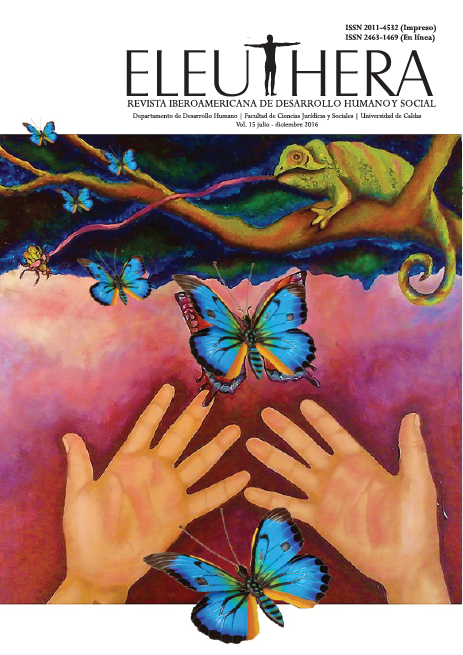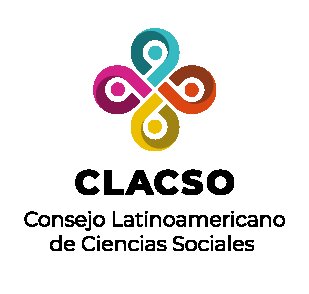Authors
Abstract
Objective. The triad mathematics – daily nature - and comprehensive pedagogy is a construct that promotes the rescue of Mathematics in the classroom. This reflective article addresses the social function of teaching Mathematics at all levels of education from the approaches of the above-mentioned triad and trans-complexity. Methodology. Hermeneutics, through the use of the three learning channels and dialogue as a tool that leads to establishing the subject-subject relationship. Result. From the inquiry, it emerged that the social function of Mathematics teaching focuses on the sociological, political-pedagogical and economic dimensions. Conclusion. The sociological dimension has the need to free the human being from a frustrating mechanism by showing Mathematics in all its complexity; the political-pedagogical dimension rescues a pedagogical imaginary where the student is the protagonist and the anti-ethical problems in the teaching are minimized. The economic dimension expresses in general that there is no possibility for the development of a country without Mathematics.
References
Cobb, P. (1994). Learning mathematics. Constructivist and interactionist theories of mathematical development. Dordrecht, Netherlands: Kluwer.
D’Ambrosio, U. (1993). Etnomatemática. Arte ou técnica de explicar e conhecer. Sao Paulo, Brazil: Ática.
D’Ambrosio, U. (1994). Cultural framing of mathematics teaching and learning. In R. Biehler., R. W. Scholz., R. Strässer, & B. Winkelmann (Eds.), Didactics of mathematics as a scientific discipline (pp. 443-455). Dordrecht, Netherlands: Kluwer.
Font, V. (2003). Matemáticas y Cosas. Una mirada desde la educación matemática. Boletín de la Asociación Matemática Venezolana, X(2), 249-279.
Freire, P. (1974). La educación como práctica de la libertad. Buenos Aires, Argentina: Ediciones Siglo XXI.
Freire, P. (1992). Pedagogía del oprimido. Madrid, España: Siglo XXI.
Freire, P. (2003). El grito Manso. Buenos Aires, Argentina: Editores Argentinas S. A
Gardner, H. (1995). Inteligencias múltiples. La teoría en la práctica. Barcelona, España: Paidós.
Godino, J. & Batanero, C. (1998). .he dialectic relationhips between research and practice: A meta-analysis of three research works. En, N. Malara (Ed), An International View of Didactics of Mathematics as a Scientific Discipline (pp. 13-22). Módena, Italia: Universidad de Módena
González, J. (2004). Bases de la Teoría Educativa Transcompleja. Un camino emergente de la Educación. Recuperado de http://www.cea.ucr.ac.cr/catedrau/attachments/078_Bases%20de%20la%20Teoria%20Educativa%20Transcompleja%20Dr.Gonzalez.pdf.
Morín, E. (1998). Introducción al pensamiento complejo. Madrid, España: Gedisa.
Morín, E. (2004). Unir los conocimientos. La Paz, Bolivia: Plural
Nicolescu, B. (2002). Manifest of Transdisciplinarity. Albany: State University of New York.
Rico, L. (1997). Reflexión sobre los fines de la Educación Matemática. Revista Suma, 4, 5-19.
Rodríguez, M. (2010). Pedagogía integral: ruptura con la tradicionalidad del proceso de enseñanza de la matemática. Aletheia. Revista de Desarrollo, Humano, Educativo y Social Contemporáneo, 3(2), 1-16.
Rodríguez, M. (2011). La ética en la praxis de la tríada: matemática – cotidianidad – y pedagogía integral. Revista Educación y Desarrollo Social, 5(1), 175-184.
Rodríguez, M. (2012). La enseñanza de las matemáticas en la crisis de la modernidad: por una renovación de la paideia. ORINOCO Pensamiento y Praxis, 2, 49-60
Rodríguez, M. (2013). Formación transcompleja del docente de matemática: consonancias con la triada matemática-cotidianidad - y pedagogía integral. En: Formación docente: un análisis desde la práctica, (pp. 39-65), Durango, México: Red Durango de Investigadores Educativos, A. C.
Skovsmose, O. (1999). Hacia una filosofía de la educación matemática crítica. Bogotá, Colombia: una empresa docente.
Vasco, C. (2005). ¡Potencias el pensamiento matemático! ¡Un reto escolar! Bogotá, Colombia: Estándares básicos de competencias en matemáticas, Ministerio de Educación Nacional de Colombia.
Werner, J. (1936). Paideia: los ideales de la cultura griega. México D.F, México: Fondo de Cultura Económica de México.

 PDF (Español)
PDF (Español)
 FLIP
FLIP




























